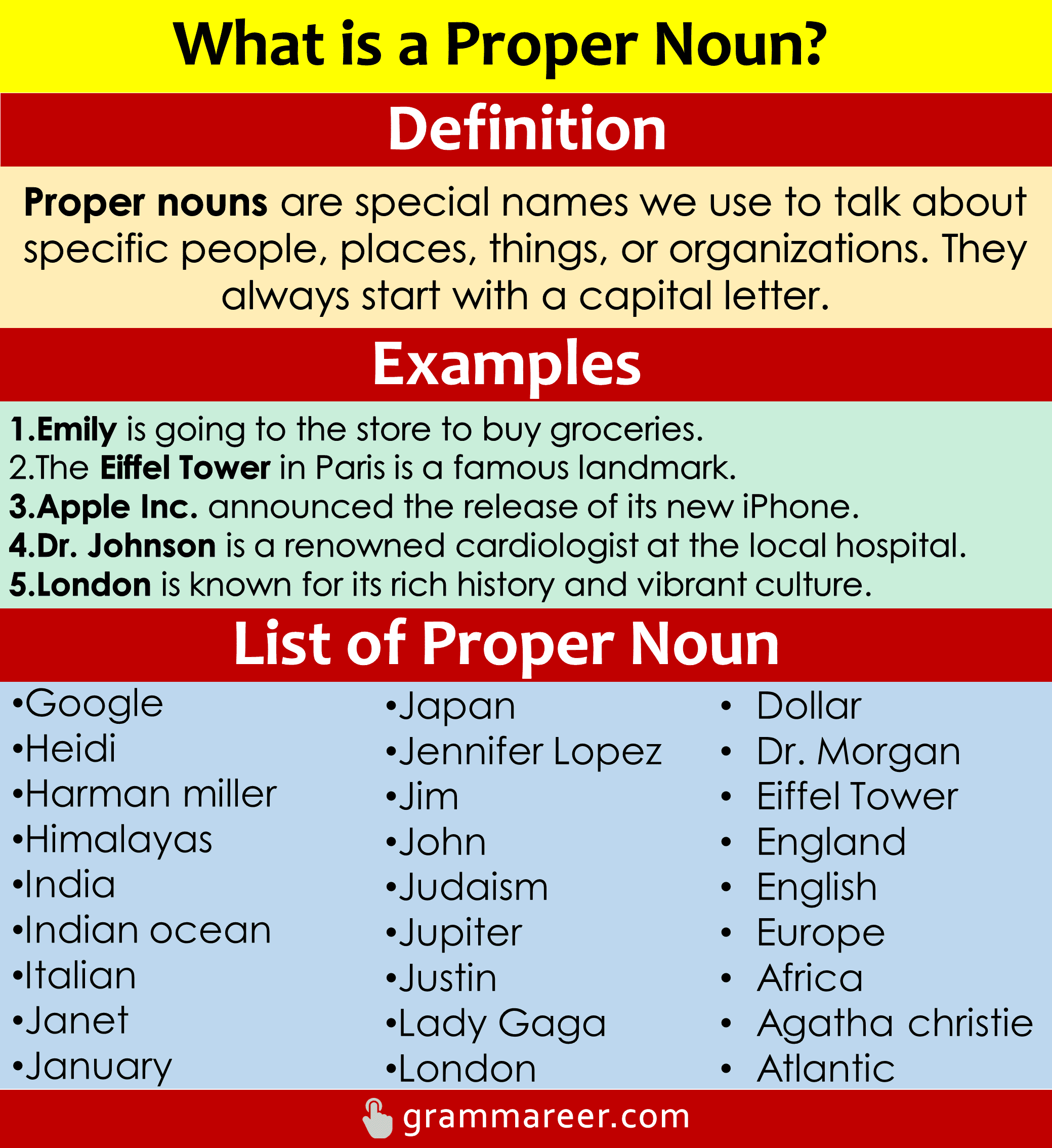In the English language, nouns are divided into two main categories: common nouns and proper nouns. Proper nouns are specific names given to people, places, organizations, and things. They are always capitalized, unlike common nouns which are only capitalized at the beginning of a sentence.
Proper nouns serve to distinguish one entity from another and give them a unique identity. Understanding proper nouns is essential for clear and effective communication in writing and speaking.
What is a Proper Noun Example?
An example of a proper noun is “John Smith.” In this case, “John Smith” is a specific individual’s name and is capitalized to indicate that it is a proper noun. Other examples of proper nouns include names of cities (Paris), countries (Brazil), days of the week (Monday), months (January), holidays (Christmas), and brand names (Coca-Cola).
Proper nouns can also refer to specific titles or positions, such as President, Doctor, or Professor when used with a person’s name. It is important to remember to capitalize proper nouns to distinguish them from common nouns.
Another example of a proper noun is “Mount Everest,” which is the highest mountain in the world. The name “Mount Everest” is a proper noun because it refers to a specific geographic location. Proper nouns can also include names of rivers (Nile), oceans (Pacific), continents (Africa), and landmarks (Eiffel Tower).
When writing, it is crucial to use proper nouns accurately to provide clarity and specificity. By capitalizing proper nouns, you highlight their importance and help readers identify the specific entities you are referring to in your text.
Overall, proper nouns play a significant role in language by giving names to unique and specific entities. By understanding proper nouns and using them correctly, you can enhance the clarity and precision of your writing.
Next time you write, pay attention to the proper nouns you use and ensure they are capitalized correctly to convey your message effectively.
